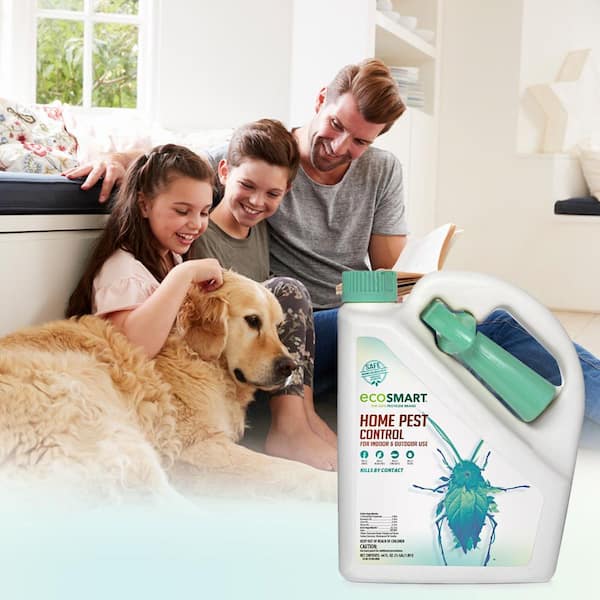
Creating a Pest-Free Haven: The Importance of Outdoor Pest Prevention
Maintaining a serene and enjoyable outdoor space requires effective pest prevention strategies. Discovering a mosquito-free and bug-free sanctuary enhances the pleasure of spending time outdoors. Let’s delve into essential tips for outdoor pest prevention that will transform your garden into a haven of tranquility.
Understanding Pest Behavior: A Key to Prevention
To effectively prevent outdoor pests, it’s crucial to understand their behavior. Different pests are active during specific times of the day or seasons. Conduct research on the common pests in your region and learn about their habits. Armed with this knowledge, you can implement targeted prevention measures that address the unique challenges posed by each type of pest.
Landscaping for Pest Control: Natural Deterrents
Strategic landscaping plays a significant role in pest prevention. Planting pest-repelling herbs and flowers, such as citronella, lavender, and marigolds, can naturally deter insects. Consider incorporating these plants into your garden beds and around outdoor seating areas to create a protective barrier against common pests. A well-thought-out landscaping plan not only enhances the aesthetics but also serves as a proactive pest control measure.
Standing Water: Breeding Ground for Pests
One of the primary attractants for pests is standing water. Mosquitoes, in particular, breed in stagnant water. Regularly inspect your outdoor space for areas with standing water, such as clogged gutters, bird baths, or containers. Ensure proper drainage and eliminate potential breeding grounds to reduce the mosquito population and other water-dependent pests.
Proper Waste Management: Removing Pest Buffets
Pests are drawn to food sources, and proper waste management is crucial for outdoor pest prevention. Keep garbage bins tightly sealed, promptly remove food scraps, and avoid leaving pet food outdoors. Regularly clean barbecue grills and outdoor eating areas to eliminate odors that attract pests. A clean and tidy outdoor space significantly reduces the likelihood of pest infestations.
Pest-Resistant Outdoor Furniture: A Smart Investment
Investing in pest-resistant outdoor furniture is a practical and long-term solution. Many materials, such as cedar or teak, naturally repel pests. Additionally, consider applying insect-resistant finishes or treatments to your existing outdoor furniture. This not only protects your investment but also creates an inhospitable environment for pests, contributing to an overall pest-free outdoor experience.
Regular Maintenance: A Defensive Strategy
Consistent maintenance is a cornerstone of effective outdoor pest prevention. Regularly inspect and repair any damaged screens, doors, or windows to prevent pests from entering your living spaces. Seal cracks and gaps in the foundation and walls to create a barrier against invading insects. Diligent maintenance not only prevents pests but also promotes the longevity of your home and outdoor structures.
Chemical-Free Pest Control: Eco-Friendly Alternatives
For those who prefer chemical-free pest control, explore eco-friendly alternatives. Essential oils, such as peppermint, eucalyptus, and neem, can serve as natural pest deterrents. Incorporate these oils into homemade sprays or diffusers to keep pests at bay without resorting to harsh chemicals. Eco-friendly pest control methods align with a sustainable and environmentally conscious approach to outdoor living.
Professional Pest Inspections: A Preventive Measure
Consider scheduling regular professional pest inspections as part of your preventive measures. A trained pest control expert can identify potential vulnerabilities in your outdoor space and provide tailored solutions. Early detection and intervention can prevent pest infestations from escalating, saving you time, money, and the frustration of dealing with a full-blown pest problem.
Outdoor Pest Prevention for a Relaxing Sanctuary
In conclusion, creating a bug-free sanctuary in your outdoor space is achievable through a combination of understanding pest behavior, strategic landscaping, eliminating standing water, proper waste management, investing in pest-resistant furniture, regular maintenance, exploring chemical-free alternatives, and periodic professional inspections. Implementing these tips will not only enhance the enjoyment of your outdoor haven but also contribute to a healthier and more sustainable living environment.
For more in-depth guidance on outdoor pest prevention, explore Outdoor Pest Prevention – your comprehensive resource for creating a bug-free sanctuary in your outdoor space.
